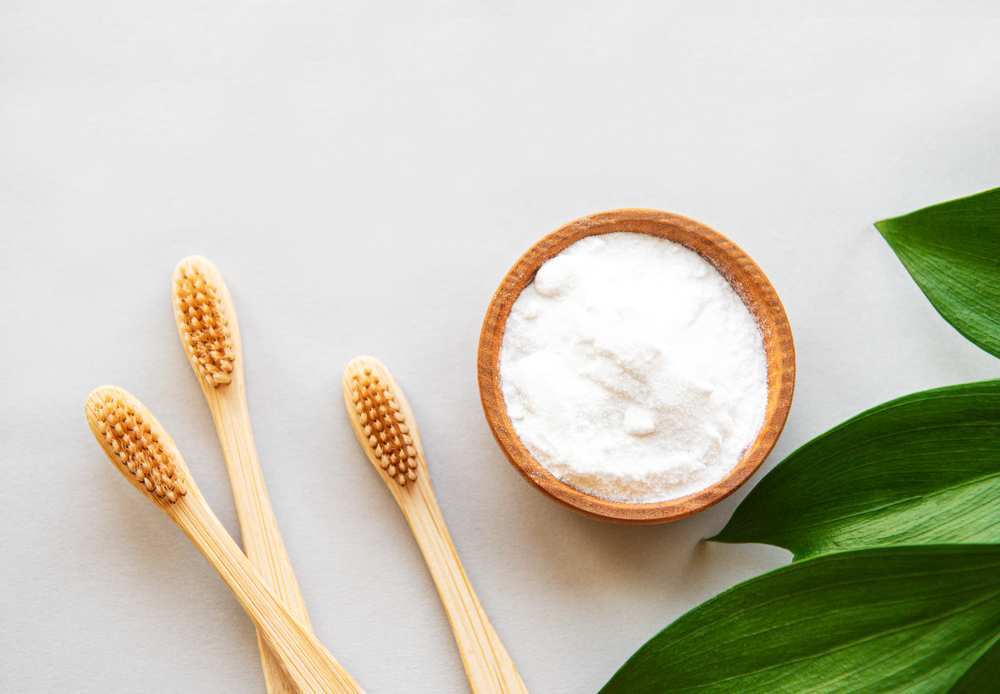Use Baking Soda the Right Way for Your Oral Hygiene

Sodium bicarbonate, commonly known and recognized as baking soda, has long been touted for its versatile uses, particularly in oral hygiene. Renowned for its gentle yet effective cleaning properties, it’s no surprise that many consider it a staple in their dental care routine. However, before incorporating baking soda into your oral hygiene, consulting with a Waterloo dentist is crucial to ensure it’s suitable for your specific dental needs. Waterloo dental experts often emphasize personalized care, so it’s essential to understand whether baking soda aligns with your oral health plan, including any scheduled cleanings and fillings.
What is Baking Soda?
Scientifically, baking soda is a compound known as sodium bicarbonate, a mildly alkaline substance with a range of uses. In the context of oral care, its history dates back centuries, with many cultures using it as a simple yet effective tooth-cleaning agent. Waterloo dental professionals acknowledge its longstanding presence in oral hygiene, often discussing its role in traditional cleanings and fillings practices.
Benefits of Baking Soda for Oral Hygiene
One of the key benefits of baking soda in oral hygiene is its teeth whitening ability. It gently removes surface stains, contributing to a brighter smile. Furthermore, its alkaline nature helps neutralize acidic environments in the mouth, reducing bad breath and promoting a healthier oral environment. Some Waterloo dentists also point to studies suggesting baking soda’s antibacterial properties, which can be beneficial in reducing plaque and enhancing overall dental health. Regular cleanings and fillings can further complement these benefits.
How to Use Baking Soda Safely
Waterloo dental professionals recommend limiting the use of baking soda to a few times a week to avoid potential damage to tooth enamel. Additionally, being gentle during brushing is essential to prevent gum irritation. Following these guidelines, along with regular dental check-ups, including cleanings and fillings, will maximize oral health benefits.
Before adding baking soda to your oral hygiene routine, it’s essential to consult with your dentist or dental professional. Everyone’s oral health is unique, and what works well for one person may not be suitable for another. Get professional advice to ensure that using baking soda is appropriate for your specific oral health needs. It’s crucial to fully understand the condition of your oral health before using any new product in your dental care regimen.
Using baking soda safely for teeth care involves a few key practices. Here are three ways to incorporate baking soda into your oral hygiene routine:
Baking Soda and Water Paste:
-
- Mix a few tiny pinches of baking soda with water to create a paste.
-
- Use this paste on your toothbrush as you would with regular toothpaste.
-
- Brush gently in circular motions, being careful not to scrub too hard to avoid damaging the enamel.
-
- Rinse your mouth thoroughly after brushing.
Baking Soda with Toothpaste:
-
- Sprinkle a dash of baking soda onto your regular fluoride toothpaste on your brush.
-
- This method combines baking soda’s benefits with your regular toothpaste, including fluoride, which is essential for fighting tooth decay.
-
- Brush gently and rinse well.
Baking Soda Mouthwash:
-
- In a glass of water, dissolve half a teaspoon of baking soda to create a mouthwash.
-
- Swish and swirl the solution around in your mouth for about 30 seconds.
-
- This can help neutralize acidic conditions in the mouth, freshen breath, and may aid in reducing bacterial growth.
-
- Rinse with water after using the baking soda mouthwash.
DIY Baking Soda Toothpaste Recipe
Creating your toothpaste with baking soda can be a fantastic, gentle, and effective way to maintain oral hygiene. Mix baking soda with natural ingredients like coconut oil, a pinch of salt, or a few drops of peppermint oil for a refreshing and clean feel. These homemade recipes are a great addition to your regular oral care routine. Remember, these should complement, not replace, professional dental advice and regular cleanings and fillings.
Risks and Precautions
Despite its benefits, overusing baking soda can lead to enamel erosion due to its abrasive nature. Waterloo dental experts advise using it sparingly and with gentle brushing techniques to avoid damaging the gums or tooth enamel. Additionally, individuals with braces or recent dental work should consult their Waterloo dentist before using baking soda to ensure it won’t interfere with their dental treatments, including cleanings and fillings.
Comparing Baking Soda with Commercial Toothpaste
While baking soda is effective for certain aspects of oral hygiene, commercial toothpastes offer additional benefits, such as fluoride content, which is essential for fighting tooth decay. Waterloo dentists often recommend weighing the pros and cons of each option. Commercial toothpaste might be the safer choice in most cases, especially for those with sensitive teeth or specific dental concerns. Regular dental check-ups, including cleanings and fillings, can help determine the best option.
Baking soda can benefit your oral hygiene routine if appropriately used. Its benefits, ranging from teeth whitening to neutralizing oral acids, make it a popular choice. However, it’s essential to use it judiciously and under the guidance of a Waterloo dentist to avoid potential risks like enamel erosion. Remember, for optimal oral health, nothing replaces regular dental check-ups, including cleanings and fillings.
